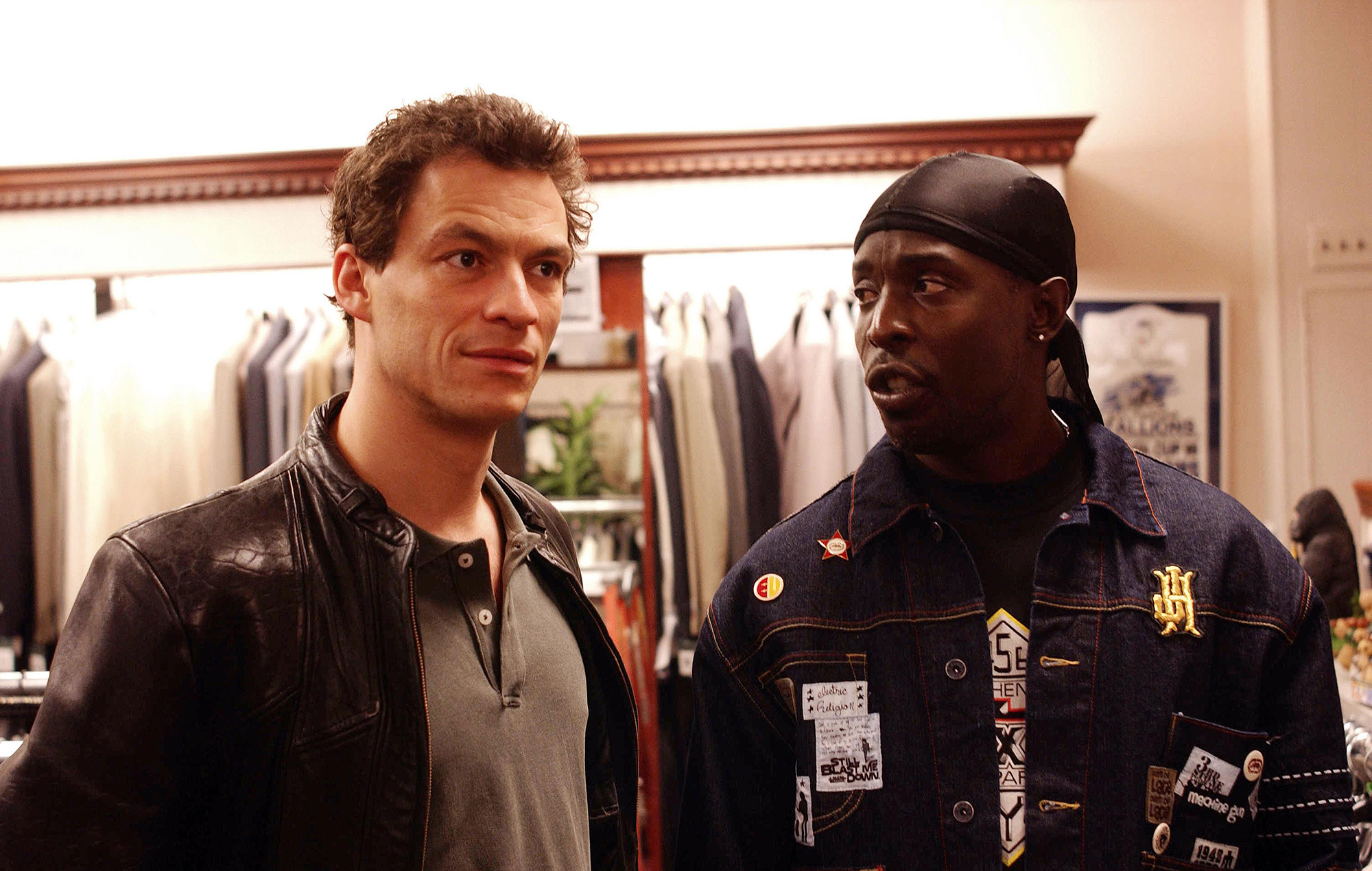
There was a time, almost 20 years ago now, when a low-rise housing project in Baltimore christened ‘The Pit’ formed the very fulcrum of pop culture. From this concrete jungle came Stringer Bell (and subsequent megastar Idris Elba); “Suit and tie motherfucker” William ‘The Bunk’ Moreland (Wendell Pierce); and, shotgun barely concealed by his tatty duster, the greatest character within a TV show packed with great characters, Omar Little.
Michael K Williams wasn’t exactly unknown when he came to prominence as the principled stick-up man in The Wire, but it was the role that made him a star. David Simon’s crime drama arrived at a time when television – the best of which often broadcast on the HBO platform – was being viewed with a reverence long reserved for cinema. Along with Oz, The Sopranos and Deadwood, The Wire was a show we sat down and binged. “A Greek tragedy for the new millennium,” said its creator, with great perception, and at the heart of it was a character unlike any we’d seen before: homicidal, sensitive, openly gay, a mediation on masculinity, armed with a pocket of slugs, a razor-sharp wit and a kiss on the cheek for grandma – “You come at the king, you best not miss…”
Obama, then in the midst of his first Presidential campaign and soon to be the most influential man on the planet, was among the character’s admirers. “Omar’s a great guy,” he said. “That’s not an endorsement – he is not my favourite person – but he’s a fascinating character: a gay gangster who only robs drug dealers, and then gives back, sort of a Robin Hood. And he’s the toughest, baddest guy on the show, but he’s gay. It’s really interesting.”

Williams had secured the role after just one audition. He’d never appeared in an episodic production before. He’d principally cut his teeth a dancer, appearing in promo videos for Madonna and George Michael. He’d then starred alongside his hero Tupac Shakur in the 1996 film Bullet. Like many Black actors, crime drama was both a calling and a cage he was keen to avoid. His understanding of Omar was quick and intrinsic. He knew the way Omar walked and the streets he walked upon. He himself had been raised in the Vanderveer projects of East Flatbush, Brooklyn. And yet while Omar was just one of many criminals he would inhabit the skin of, nobody could accuse Williams of ever resorting to type.
He told journalist Joel Murphy in 2005 of the process that led him to taking charge of the character. “They kept it real, and told me, ‘Omar is only supposed to be in seven episodes. We’re very sorry that we wrote to kill you off.’ By the end of those seven episodes, I’m waiting to see how I’m going to die. Here we are three years later and I’m talking to you about Omar…” The character’s sexuality was key to Williams wanting the role. “I fell in love with him on the paper when I read the breakdown,” he said, “before I even read a script.”
The deep scar that divided his face could have been the death knell for a career that had barely got going. Instead, it led to modelling commissions with photographer David LaChapelle, as well as the aforementioned union with Tupac (who’d allegedly demanded his services after seeing a polaroid of Williams’ face in Bullet director and filmmaker Julien Temple’s studio). A blessing in disguise, albeit a painful, traumatic one. Williams unquestionably had the acting chops for the role of Omar. “Give him the part! Any part he wants! You’re a great actor” said Martin Scorsese when he’d auditioned for the directors 1999 film Bringing Out The Dead. The scar was the grizzly window dressing that set him further apart.
“It was my 25th birthday,” he once recalled. “I was in a bar, shit got hot, drinking, then words got exchanged and bottom line, there was more of them then there was of me, dudes had razors in their mouths, and I got cut. Wrong place, wrong time basically. Wrong drink. That definitely woke me up. That definitely was a life altering experience. I almost died that night.”
Williams’ talents were much in demand after The Wire – and the story arc of Omar – wrapped up in 2006. He stayed loyal to HBO – and between 2010 and 2014 starred as 1920’s Atlantic City bootlegger Albert ‘Chalky’ White, again working under the watchful eye of Martin Scorsese in the ultra-acclaimed Boardwalk Empire. Elsewhere, his sad eyes amplified the horror of Netflix’s telling of the Central Park Five story in 2019’s When They See Us. Incarceration – wrongly or otherwise – was an issue that mattered deeply to Williams. His presentation of HBO’s Raised In The System documentary dovetailed with his role as the American Civil Liberties Union ambassador for ending mass incarceration.
The actor’s drug taking during the filming of The Wire has long been common knowledge. “I don’t know how I didn’t end up in a body bag,” he said in 2012, remembering the extent of his cocaine usage. Williams’ passing at the age of 54 is a death that’s too soon, too cruel, a waste. Remember him in his pomp, as the genius behind one of television’s most iconic characters.


